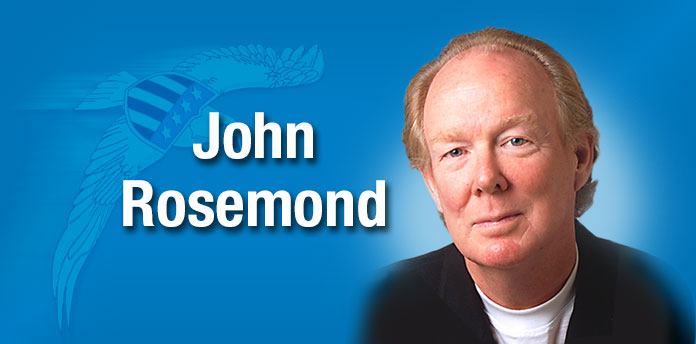QUESTION: In certain of your books as well as your newspaper column, you have written that children as young as three should be doing daily chores around the home. Exactly what chores are reasonable for that age child?
ANSWER: First, a personal anecdote: My mother kept a scrapbook of my early years that contained photos, notes, and other such memorabilia. Browsing through it one day, I found a photograph she had taken with her Brownie camera of me washing the kitchen floor in our tiny apartment on Church Street in Charleston, South Carolina. On the reverse side of the photo Mom had written a date indicating that I was three years and six months old at the time.
When I asked her about it, Mom told me that I enjoyed doing housework and that teaching me to wash a floor had been straightforward and easily accomplished.
She also emphasized that she had held me to a fairly high standard. If I did a sloppy job of floor-washing, she had me do it over again. Such was “parenting” — actually, it was known as simply “childrearing” back then — before it became necessary to clap and squeal over anything a child did to ensure the continuing inflation of self-esteem.
My training in proper husband-hood continued. By age five, before I started first grade (Kindergarten was not universal in South Carolina in the early 1950s), I was occasionally washing my own clothing in Mom’s “washing machine,” which consisted of a large, galvanized tub with hand rollers bolted to it. And again, there were enforced standards. “Do it right the first time and you won’t have to do it again,” became my motto.
The point of this reminiscence is that young children are more capable than most folks, apparently, think them to be. I was not a chore-savant at three. I was simply trained properly, which is to say, patiently but with calm insistence that I do the job to the best of my ability. Let’s face it, washing a floor is about as basic as it gets. Dip sponge, wring, put on floor, wipe, dip, wring, etc.
Besides, my mother’s purpose was not to have me do the job as well as she would have done it, but to teach me a fundamental citizenship skill as well as the value of a clean and tidy environment. As we Boomers were told (but few children, these days, hear), “Good citizenship begins in the home.”
As for washing clothes in a tub, it was a simple matter of grabbing two handfuls of fabric and rubbing them together until the grass stains were eradicated. Again, not complicated.
My lessons in home management continued after Mom’s remarriage. One summer, at age twelve, I painted our split-level home. Thankfully, we were then living in a Chicago suburb where it was not quite as humid as Charleston and my water, courtesy of an actual refrigerator-freezer (as opposed to the Charleston ice box), was iced. (One of my more vivid early memories is the regular visits of the iceman with his tongs.)
Teaching children that there is no such thing as a free lunch, that consumption must be balanced with contribution, is essential to the maintenance of a civil society. I can’t quite wrap my head around thinking one’s youngster is a genius and yet expecting virtually nothing from him. After all, one truly respects a child by expecting, reasonably, of him.
[Family psychologist John Rosemond: johnrosemond.com, parentguru.com. Copyright 2022, John K. Rosemond]












Leave a Comment
You must be logged in to post a comment.